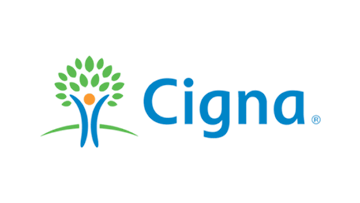
Holistic Approach to Mental Health
Idaho Behavior believes in a holistic approach to mental health, which embraces the interconnectedness of mind, body, and spirit. This methodology ensures that each client receives comprehensive care tailored to their individual needs. The team at Idaho Behavior recognizes that mental health challenges do not exist in isolation; thus, they consider the overall well-being and lifestyle of each client when developing treatment plans.
An emphasis is placed on therapeutic environments that nurture growth, healing, and self-discovery. Customized interventions are designed to build resilience and enhance life skills, encouraging clients to thrive. This holistic perspective fosters long-lasting change and empowers individuals to lead fulfilling lives.
Individualized Therapy Sessions
Idaho Behavior is proud to offer personalized therapy sessions, emphasizing the importance of individualized care in addressing mental health services Boise ID residents can trust. Experienced clinicians work closely with clients to develop personalized treatment strategies aimed at achieving specific goals and overcoming personal challenges.
Understanding that each client’s journey is unique, these tailored sessions address a broad spectrum of mental health concerns, including anxiety, depression, and trauma. By establishing a collaborative therapeutic relationship, clients are encouraged to actively participate in their own healing process, promoting self-efficacy and independence.
Clients can expect a supportive and non-judgmental space where they feel heard and understood throughout their therapeutic journey. This approach not only enhances the effectiveness of treatment but also helps instill confidence and hope.
Supporting Families Through Counseling
Families play a crucial role in the mental health and well-being of their loved ones, and Idaho Behavior is committed to providing comprehensive family counseling services. Recognizing the systemic nature of family dynamics, their approach seeks to enhance communication, strengthen relationships, and resolve conflicts within the family unit.
Family counseling sessions focus on creating a safe environment where family members can express their concerns and emotions openly. Therapists guide families through understanding each member’s unique perspectives and encourage empathy and active listening.
By addressing underlying issues and promoting healthy coping mechanisms, families can work together towards mutual understanding and support. This approach ensures that families are equipped with the tools needed to foster a nurturing environment conducive to positive behavioral change.
Idaho Behavior’s commitment to family counseling extends to working with diverse family structures and backgrounds, ensuring that all families feel welcome and respected throughout the therapeutic process.
Skill-Building for Lasting Change
Central to Idaho Behavior’s mission is the focus on skill-building sessions designed to equip clients with essential life skills and coping strategies. These sessions are integral to the mental health services Boise ID families can rely on for sustainable change and personal growth.
Skill-building activities are crafted to address various developmental needs, including social skills, emotion regulation, and stress management. Clients are encouraged to actively participate in experiential learning opportunities that enhance their ability to navigate life’s challenges with resilience and confidence.
Addressing Youth Mental Health Needs
Idaho Behavior places a strong emphasis on addressing the mental health needs of young individuals, understanding the unique challenges they face during pivotal developmental stages. Services are tailored to support children and adolescents in overcoming obstacles related to mental health disorders, such as autism spectrum disorders and developmental disabilities.
Therapists utilize evidence-based practices to support young clients in building emotional intelligence, fostering social connections, and enhancing adaptive functioning. By creating a nurturing and engaging environment, Idaho Behavior empowers youth to achieve personal growth and reach their full potential.
Anecdotes from Clients and Professionals
Clients often share powerful stories of transformation, highlighting the positive impact Idaho Behavior has had on their lives. One client describes her journey with anxiety, noting how individualized therapy helped her reclaim control over her life. Another family shares heartfelt gratitude for the family counseling that strengthened their bonds and improved communication.
Professionals at Idaho Behavior also share anecdotes illustrating their dedication to mental wellness. A therapist recounts the rewarding experience of witnessing a young client with developmental challenges make significant progress through skill-building sessions and therapeutic interventions.
Commitment to Professional Development
Idaho Behavior’s commitment to professional development ensures that their team remains at the forefront of advancements in behavioral health. Ongoing training and education are prioritized to equip clinicians with the latest evidence-based practices in mental health services Boise ID communities can depend on.
This dedication to professional excellence fosters a culture of continuous learning and innovation, enabling Idaho Behavior to deliver the highest standard of care. Clients benefit from treatment approaches that are both current and effective, ensuring the best possible outcomes for their mental health journeys.
Embracing Diversity and Inclusivity
Idaho Behavior is committed to fostering an inclusive and diverse environment where all clients feel respected and valued. Their approach to mental health services Boisie ID communities benefit from, emphasizes cultural competence and sensitivity to the unique needs of individuals from diverse backgrounds.
Clinicians work diligently to create a welcoming space that celebrates diversity in all its forms, understanding the importance of representation and equity in mental health care. By acknowledging and embracing cultural differences, Idaho Behavior ensures that all clients receive personalized and respectful care that aligns with their values and beliefs.
This commitment to inclusivity extends to collaborating with community organizations and resources to enhance support networks for underrepresented populations.
Community Impact and Outreach
Idaho Behavior’s influence extends beyond therapy rooms, actively engaging with community partners to promote mental wellness and resilience. By participating in outreach initiatives, they aim to raise awareness about mental health services Boise ID residents can access and the importance of mental health care.
Collaborative efforts with local schools, organizations, and government agencies help create a supportive ecosystem for mental health care. These partnerships also facilitate the sharing of resources and knowledge, ensuring that mental health support is accessible to all who need it.
Creating a Supportive Environment
The facility at Idaho Behavior is designed to be welcoming and accessible, ensuring clients feel comfortable and safe as they embark on their mental health journeys. The physical space is thoughtfully curated to foster a sense of serenity and peace, contributing to the therapeutic process.
Clients are greeted with a warm and inviting atmosphere that encourages openness and relaxation, setting the tone for meaningful and productive therapy sessions. This commitment to creating a supportive environment underscores Idaho Behavior’s dedication to client-centered care and positive outcomes.
Evidence-Based Approaches in Therapy
At the core of Idaho Behavior’s practice is the use of evidence-based approaches in mental health therapy, ensuring that clients receive scientifically supported interventions. Techniques such as cognitive-behavioral therapy, mindfulness strategies, and trauma-informed care are employed to address various mental health challenges effectively.
This commitment to evidence-based practices not only enhances the quality of care but also supports clients in achieving their personal goals and fostering long-term behavioral change. Idaho Behavior remains dedicated to continuously evaluating and refining their therapeutic approaches to ensure efficacy and client satisfaction.
Long-Term Goals for Mental Health Improvement
Idaho Behavior is dedicated to helping clients set and achieve long-term goals for mental health improvement, facilitating sustainable progress and personal fulfillment. Therapists work collaboratively with clients to identify aspirations and develop actionable plans to reach these objectives.
By focusing on long-term goals, clients are empowered to envision a future where they can thrive and maintain mental wellness. This forward-thinking approach fosters resilience and adaptability, equipping clients with the skills and knowledge necessary to navigate life’s challenges successfully.

What are the top 3 mental health issues in Idaho?
Idaho, like many states, is facing significant mental health challenges. According to the Idaho Department of Health and Welfare, the top three mental health issues in the state include depression, anxiety disorders, and substance use disorders. Depression and anxiety often stem from various stressors including economic challenges and rural isolation, which can exacerbate feelings of loneliness and despair. Substance use disorder is prevalent, partly due to limited access to mental health resources and the stigma surrounding mental health care. Addressing these issues requires a collaborative effort involving local healthcare providers, government, and community organizations to improve access and reduce stigma. Readers might consider how these issues affect their own communities and what steps local agencies are taking to address them.
What is the mental illness law in Idaho?
Idaho has specific laws in place that address mental illness, primarily focused on patient rights and involuntary commitment. The Idaho Behavioral Health Community Crisis Centers play a crucial role in the mental health system, providing immediate crisis intervention services. Idaho Code Title 66 governs the state’s mental health laws, including criteria for involuntary treatment. It’s vital to understand that these laws aim to balance individual rights with the need for treatment. For anyone struggling or knowing someone who is, understanding these rights is key. This information can empower individuals and families to seek the appropriate help while ensuring they are informed about their legal rights.
How to deal with unstable mental health?
Dealing with unstable mental health is a process that requires patience and support. At Idaho Behavior, we emphasize a holistic approach that considers the mind, body, and spirit. It’s important to first seek professional help, which might include a combination of therapy, medication, and lifestyle changes. Engaging in regular physical activity, maintaining a balanced diet, and practicing mindfulness techniques can also support mental stability. Remember, you are not alone, and reaching out to professionals or support groups can make a huge difference. What steps could you or someone you know take today to move towards mental stability?
How to get a mental health diagnosis?
Obtaining a mental health diagnosis involves a few steps, starting with consulting a healthcare professional. Here at Idaho Behavior, we conduct comprehensive assessments to accurately understand and diagnose mental health conditions. The process typically begins with an initial evaluation, where a clinician gathers information about your symptoms, medical history, and lifestyle. Diagnostic tools, interviews, and sometimes psychological testing may be used for a thorough understanding. It’s important to be open and honest during this process to ensure a precise diagnosis. If you’re feeling uncertain about where to start, consider reaching out, and we’ll guide you through this journey.
What are the benefits of individualized therapy sessions at Idaho Behavior?
Individualized therapy sessions at Idaho Behavior offer a tailored approach to mental health treatment. Each session is designed to meet the unique needs of the client, addressing specific concerns and setting personal goals. By focusing on individualized care, clients are more likely to experience effective treatment outcomes, gain a sense of ownership over their healing process, and build stronger therapeutic relationships. Our experienced clinicians work alongside clients to foster self-discovery and promote resilience. If you’re considering therapy, ask yourself how personalized care could transform your mental health journey.
Why is family counseling important in mental health care?
Family counseling is vital because it addresses the systemic nature of family dynamics that can greatly impact an individual’s mental health. At Idaho Behavior, family therapy focuses on improving communication, resolving conflicts, and strengthening relationships within the family unit. By working with entire families, we help create a supportive environment that promotes healing and understanding for all members. Involving family in the therapeutic process can lead to long-lasting positive changes. How could involving your family in counseling benefit your collective mental wellness?
How do skill-building sessions contribute to lasting mental health change?
Skill-building sessions lay the groundwork for lasting change by equipping clients with essential life skills and coping mechanisms. At Idaho Behavior, these sessions focus on areas such as emotion regulation, stress management, and social skills. By actively engaging in experiential learning, clients can practice these skills in a supportive environment, leading to improved resilience and confidence. The benefit is not just immediate relief but the ability to handle future challenges effectively. What skills might you or a loved one need to develop further to enhance your mental health resilience?
Resources
- National Alliance on Mental Illness – Provides education, support, and advocacy for individuals and families affected by mental health conditions.
- Substance Abuse and Mental Health Services Administration (SAMHSA) – Offers resources and information on mental health and substance abuse treatment and prevention.
- Psychology Today – Features articles, therapist directories, and mental health resources for individuals seeking support.
- American Psychological Association – Promotes the advancement of psychology and provides resources for professionals and the public on mental health topics.
- Mental Health America – Works to improve mental health through advocacy, education, research, and support services.




